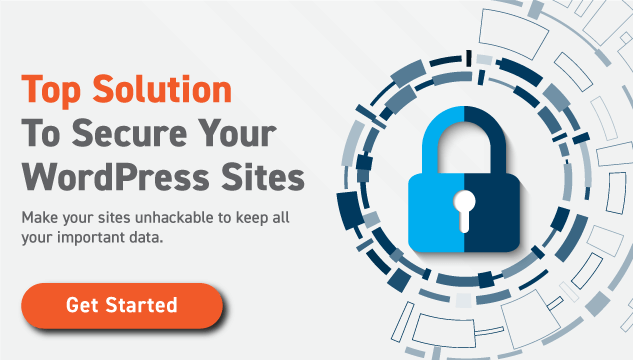Apples or Oranges? Sunny side up or Poached? Red Wine or White? Ever so often, we are faced with many difficult questions. Choices that we have to make in our daily lives and while we would love that they were always about food or drink, they’re not. In your business, you may be faced with many questions. One main one being whether to use HTML vs WordPress to develop your website. Which choice reigns supreme?
In this article, you will get help in making the right business decision so your best potential is shared with your customers. Let’s begin by looking at both platforms individually.
HTML vs WordPress: What is WordPress?
When it comes on to Content Management Systems, WordPress is one of the most popular. In a general sense, a Content Management System (CMS) grants you the opportunity to build, manage and maintain your website within a friendly user environment.
The administrative interface with which you are provided, allows you to configure (make changes) to your website in an easy fashion.
HTML vs WordPress: What is HTML?
Programming languages come in many types. One of these languages is HyperText Markup Language (HTML). HTML is considered as a standard language for documents designed to be shown in a web browser. The platform of HTML is supported by Cascading Style Sheets (CSS) and script language known as Javascript.
In most cases, HTML requires the employ of a webmaster to build a website for your business so in comparison, WordPress sites utilize database to retrieve and store user’s content while with HTML sites, websites store all a websites’ content in static files.
Features to consider in WordPress vs HTML?
Simply put HTML requires a web developer to create content via code (CSS, Javascript etc.) After all the coding work is done, a client will receive a completed website. With WordPress, no web developer is needed and WordPress actually powers over 35% of websites on the net. With that said, let’s take a look at some of the features you should consider when deciding between WordPress vs HTML for your business.
1. Data Security is key
Paramount to the operation of your web business is data security. As with the advent and progression of social media and general internet use, data security has been a hot topic. When deciding between WordPress vs HTML, this is also a fundamental consideration.
WordPress being a highly used and popular Content Management System prides itself with data security measures that can be trusted. WordPress also provides plugins geared directly at security so that you can deter unscrupulous persons from hacking your site.
On the other hand, with HTML, pinpointing security risks is more difficult. It requires a more manual/hands on approach to deter unscrupulous persons from hacking your site. Data security with HTML will require more time, effort and expertise to prevent risks.
2. Themes and templates anyone?
To any website, themes and templates are a standard feature. For HTML websites, the best way to apply themes and templates is to have a ready-made template and perform manual customization fitting your content.
With WordPress, themes and templates for your business are readily available for use. Many of them may be free and some may come at a cost. They are normally not in need of manual customization or configuring however this still adds appeal and personalization for your many visitors.
3. The specialty of mobility
WordPress is compatible with all mobile platforms. Users have the ability to apply updates to different screens hence no checking of websites in required. WordPress also doesn’t require the creation of different versions of your website for different devices such as smartphones and tablets.
With HTML that is built on a custom-made platform, it is a requirement that developers create different versions of your website to be compatible with smartphones and tablets.
4. Content management with or without all the code
Websites are built on coding. To the average person, programming code may not be a thing they are readily intrigued to do. As a result of this, when persons are building a website for their business, they prefer the seamless route. They prefer a setup where all the coding is already done for them.
With HTML, you will need to be adept in the technical side of web building. Therefore it is highly possible that you will need to employ a web developer that will build, maintain and update the content of your website.
WordPress removes the coding work in building a website for your business. In essence, expert knowledge is not a requirement to build a WP site. The user interface grants you the ability to create and share content, update the website, better the functionality, configure SEO tools among other functions.
5. Money talks
In all things business, money plays a fundamental role. Most things will rise and fall on this commodity. To employ a web developer is usually a costly route for custom HTML with emphasis on who you hire. Consideration must also be taken for hosting and maintenance fees in the entire process as well.
WordPress comes as a handy alternative in this scenario for many small and medium sized businesses. Custom-built HTML sites are more often than not associated with large corporate companies that have a budget to offset costs for web development.
In addition, WordPress with its free version does provide all the functionality to build and maintain a fully operational website.
So which do you choose, the blue pill or the red pill?
HTML vs WordPress: decisions, decisions
In the above, we went through some of the factors that will influence your choice when determining which is best for your business, WordPress vs Static HTML. Having gone through the factors, you perhaps have already decided which route is best for your business.
As with many decisions in life, cost is a dependent variable and with Static HTML, if it is that you can hire a web developer to produce all the custom coding you need plus the bells and whistle that will make your site super appealing, then by all means, static HTML is your path of choice.
On the other hand, if it is that you are operating on a small or a budget convenient to you and hiring a web developer is not an item, then WordPress is ideal. With WordPress, you can generate traffic, increase your client base in a time efficient manner and produce high quality content that presents your business in a professional and positive light without an exorbitant cost. You can also add different bells and whistles with this option albeit in some cases they won’t be as custom as you may want.
The best of both worlds
FLATsite offers WordPress lovers and HTML enthusiasts the best of both worlds. You can develop hundreds of WordPress sites with your beloved themes and powerful plugins all on FLATsite instance. FLATsite static HTML generator will automatically convert your dynamic WP site to HTML in minutes! Want to learn how it works? Check out this guide.
The takeaway
With all the other factors considered along with weighing the cost, do you see which route is best for you? Hopefully having gone through all of the above, you are more aware which choice reigns supreme WordPress vs HTML. Now you can choose the best option for your business.
Do you need help in getting started with your online business? Contact sales for more details. Let us help you increase your client base and bring your business to higher heights with Fast, unhackable static sites.







